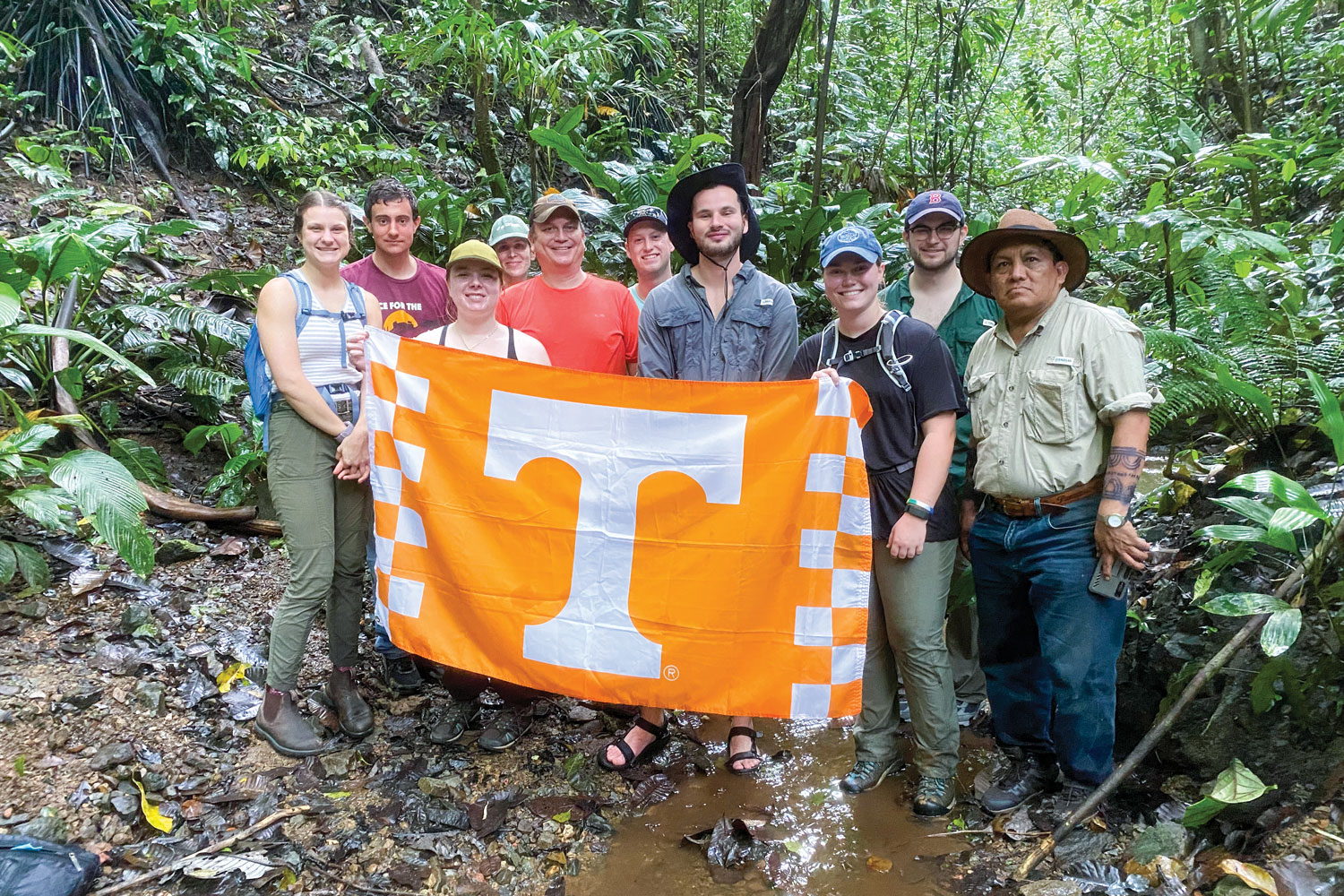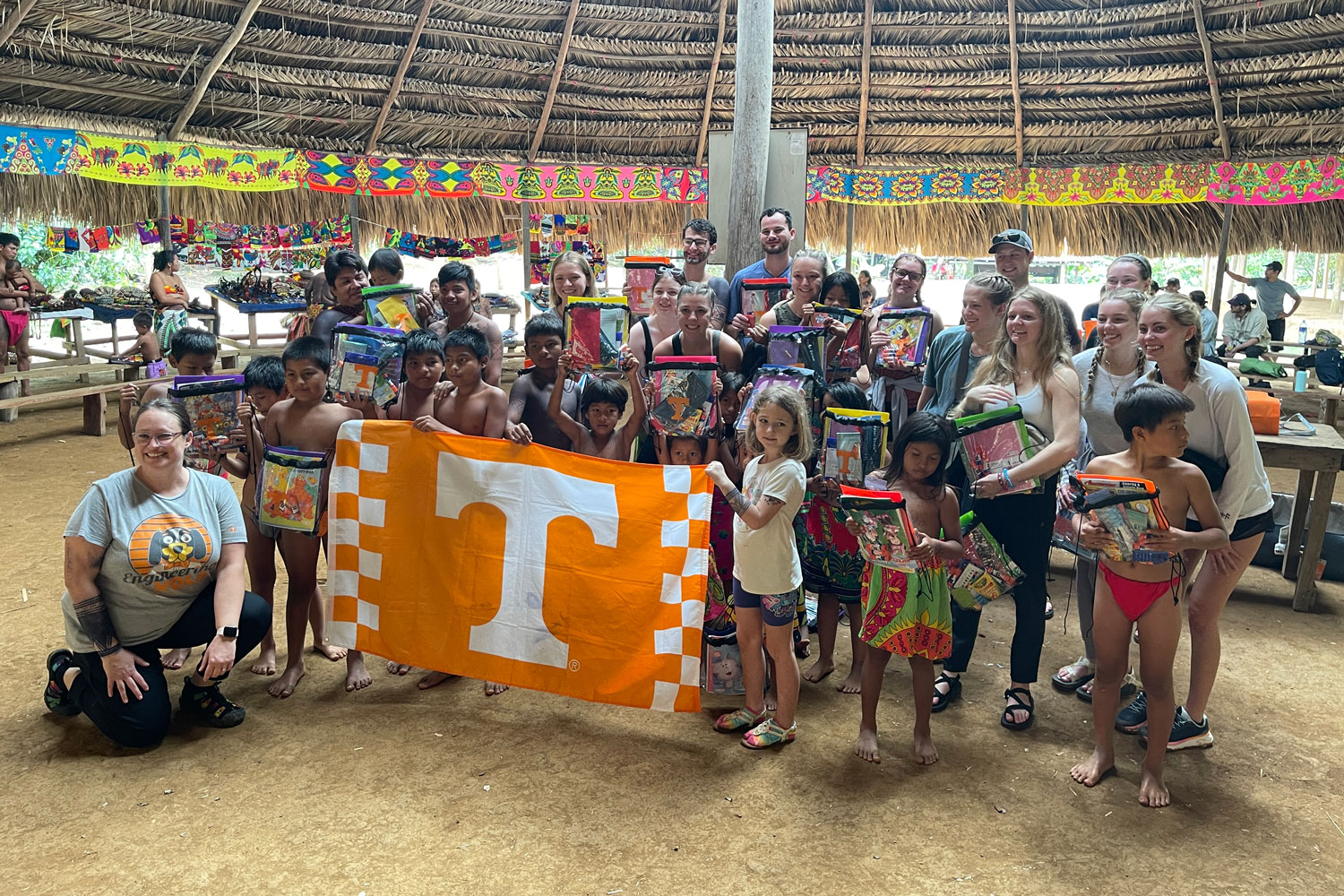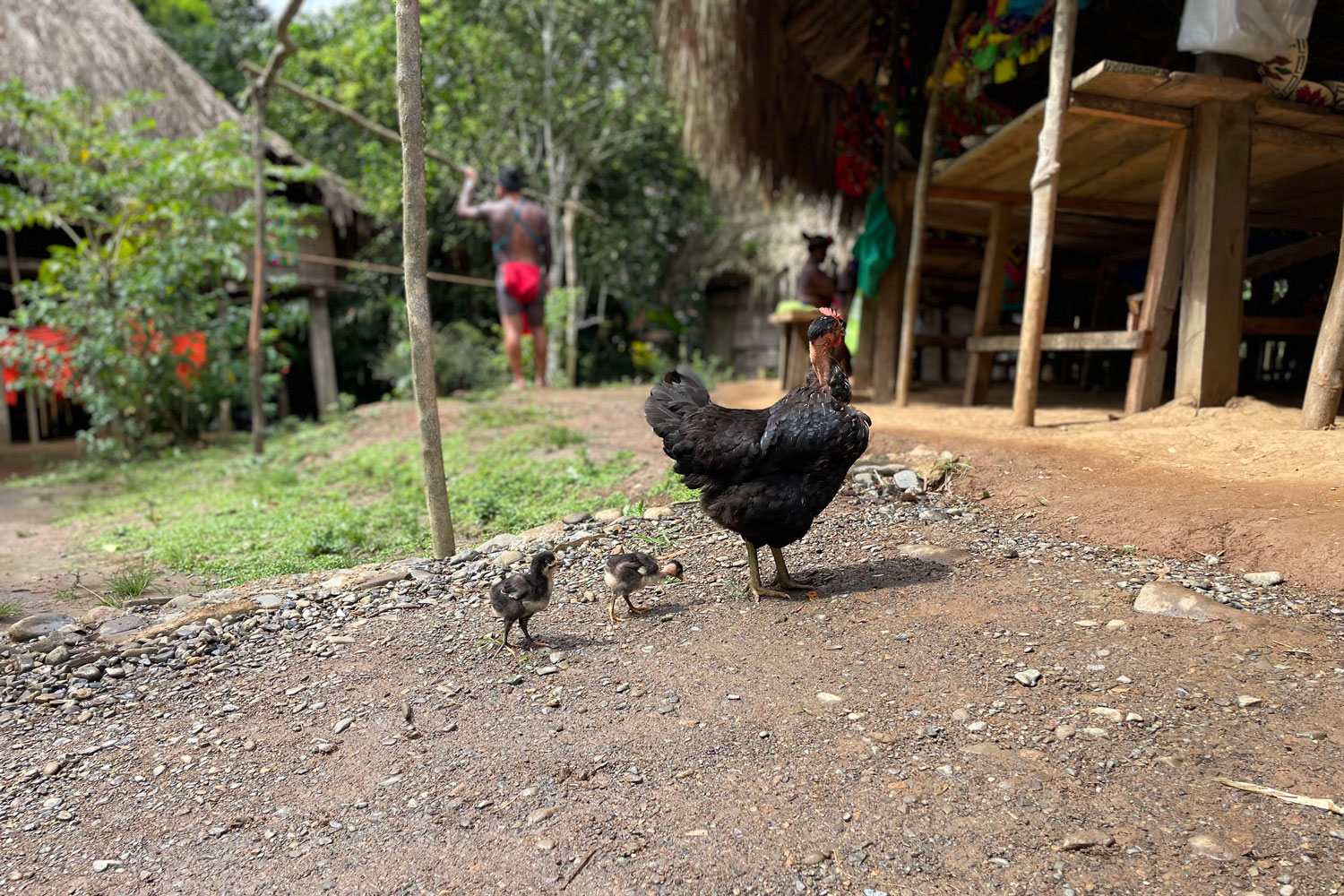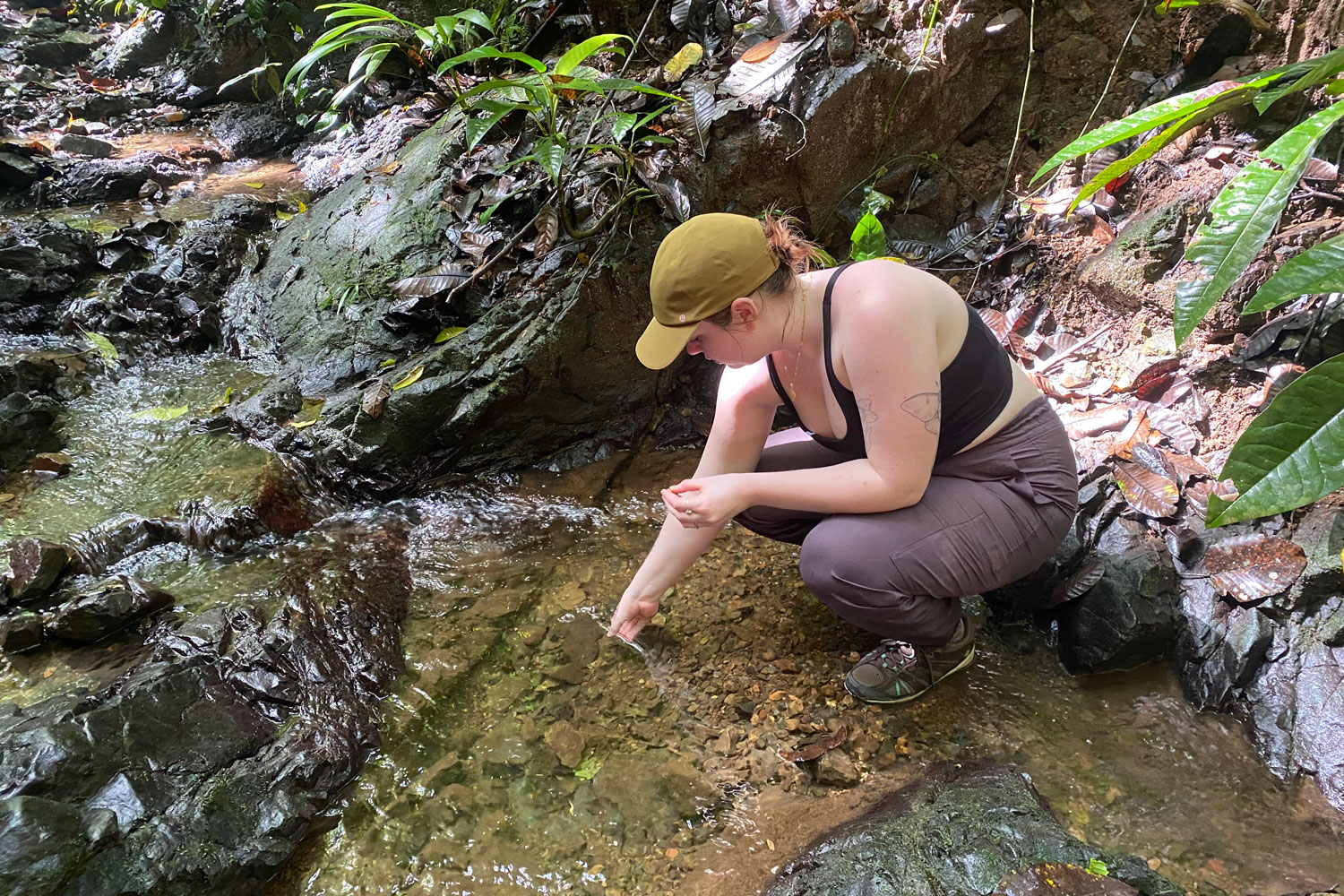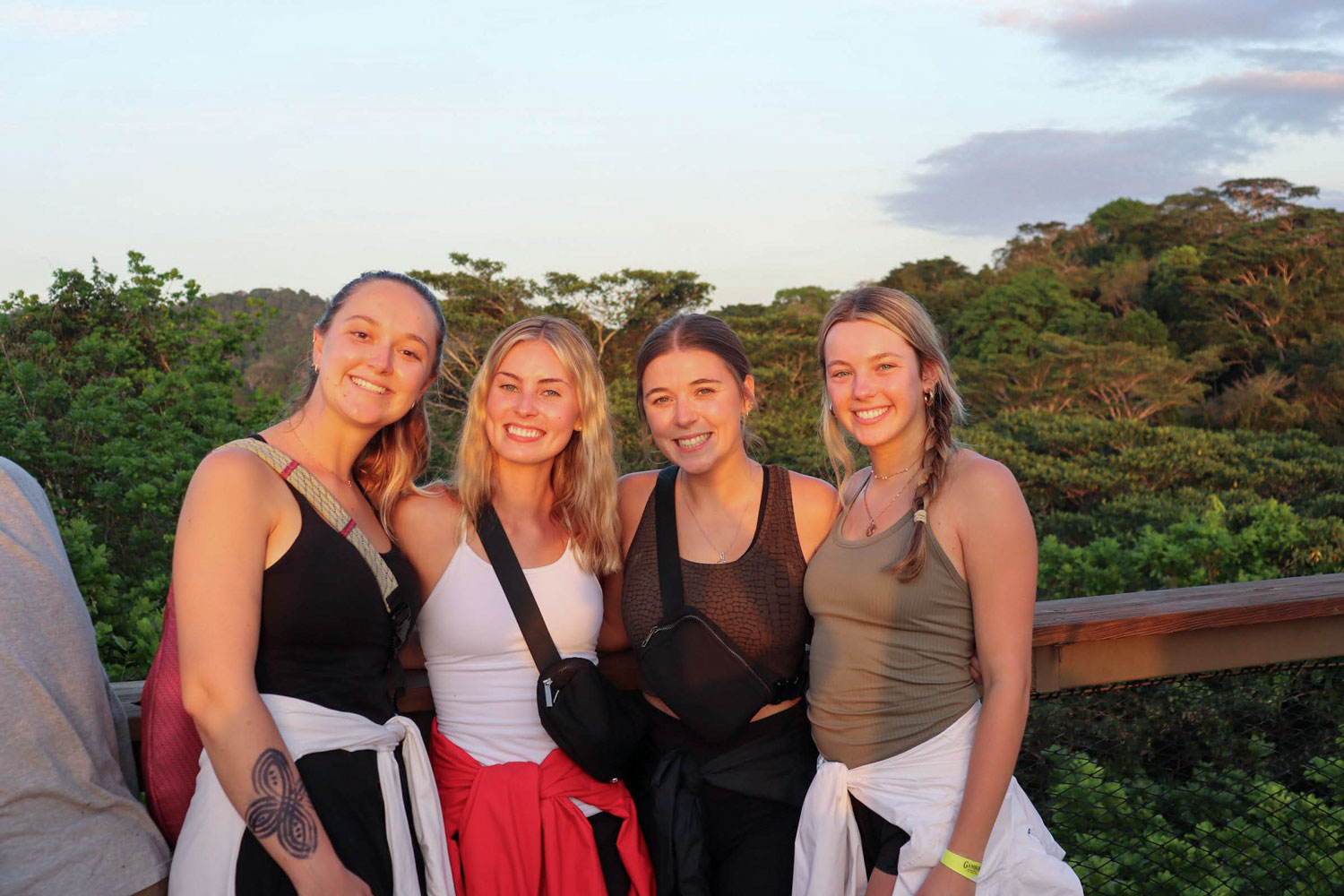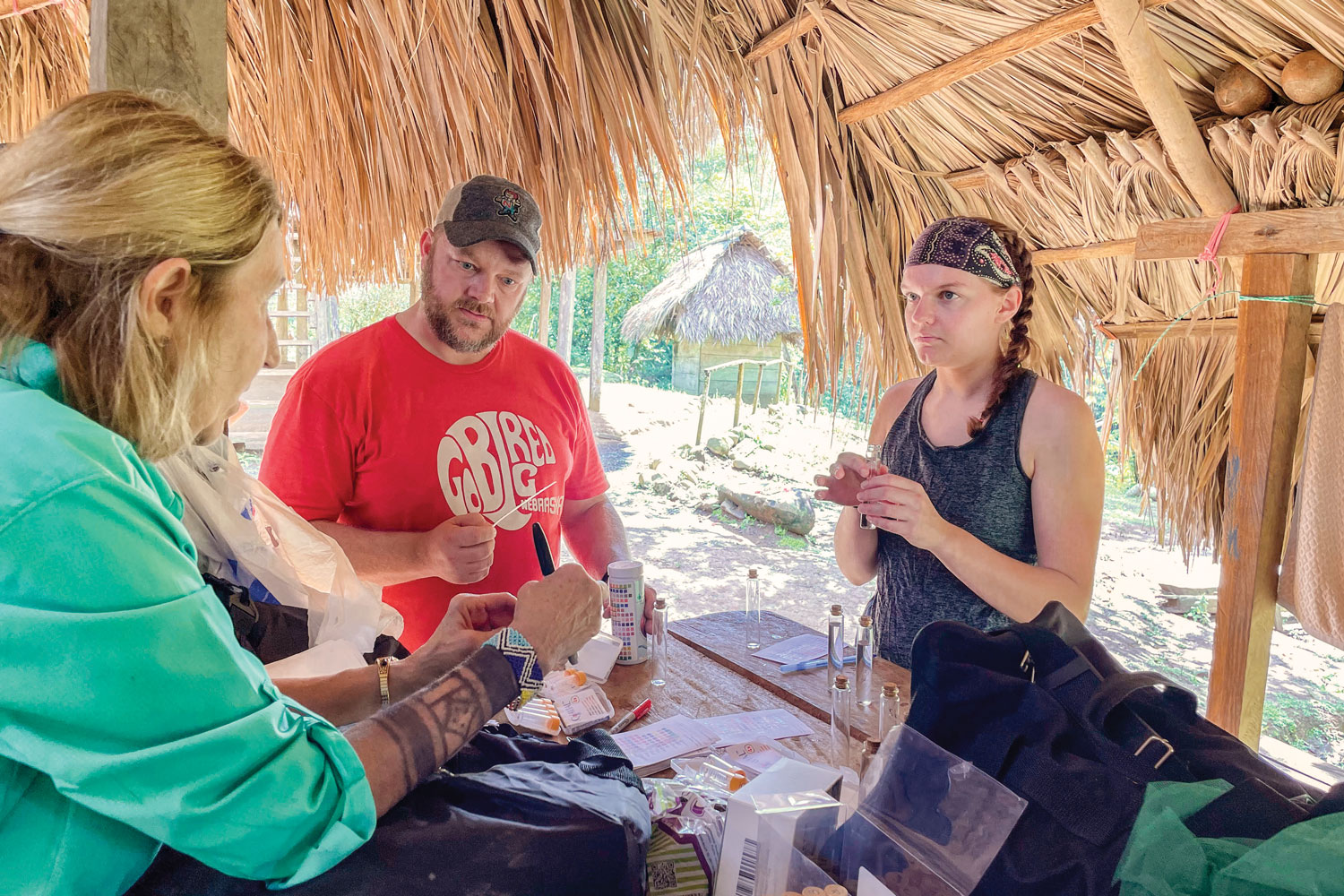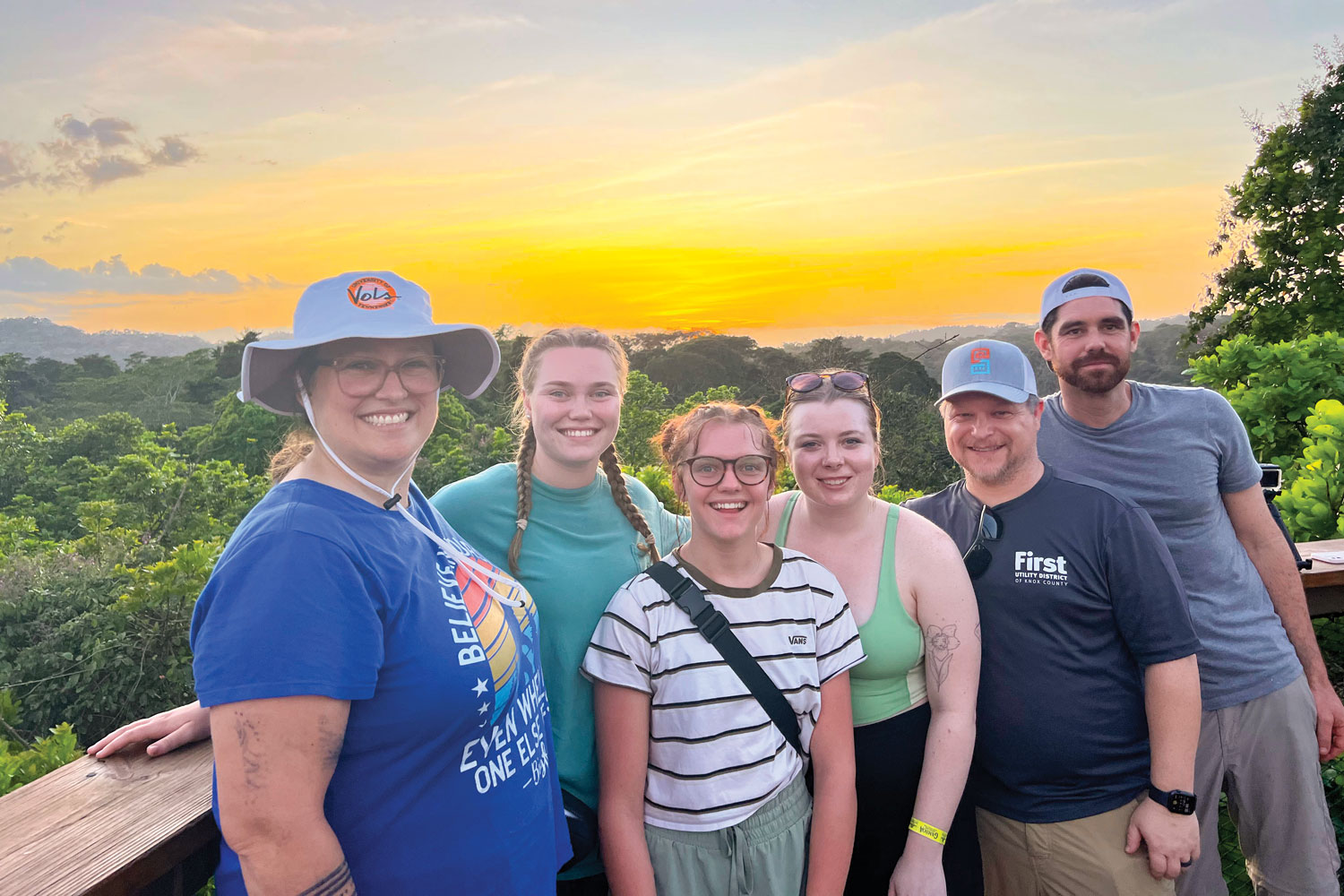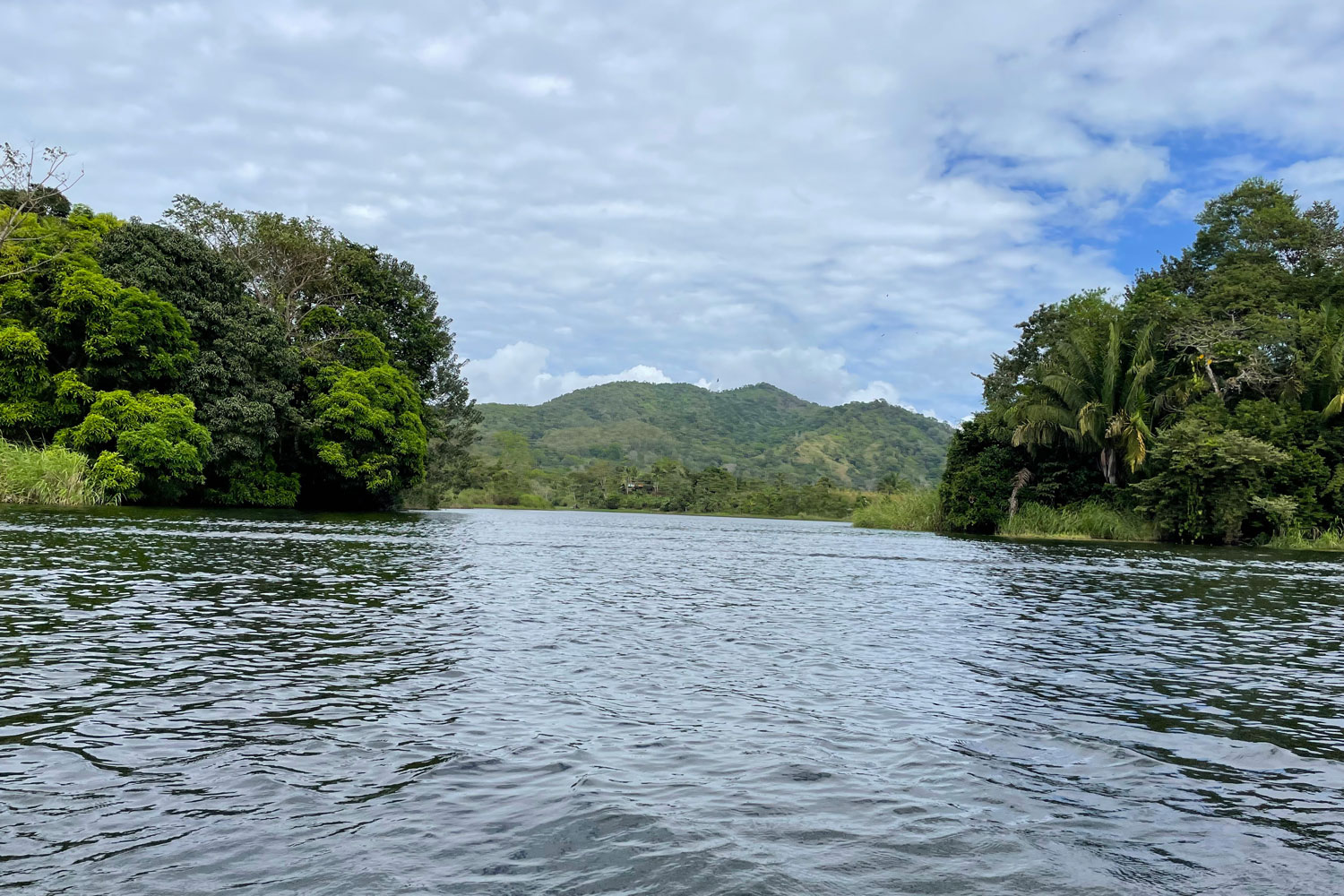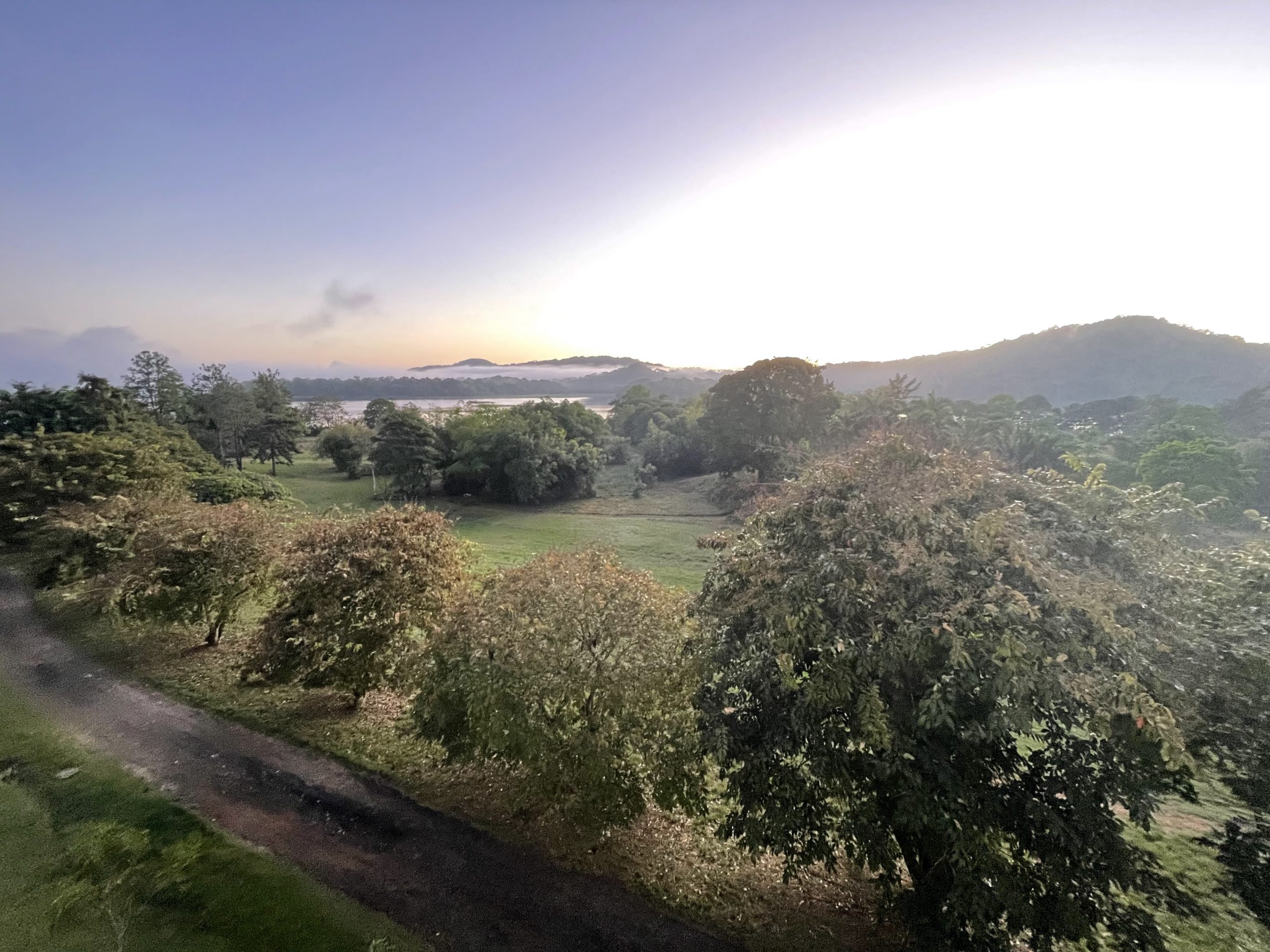Jenny Retherford, distinguished lecturer in civil and environmental engineering, and a multidisciplinary team of Vols began 2023 with an expedition up a Panamanian river to establish international bonds for education and experience, and ultimately to improve clean water availability for remote communities.
Sixteen students representing civil engineering, biosystems engineering, nursing, and forestry undertook the trip to lend their skills to a culture far outside of their usual experience. They visited Panamanian universities and found themselves traveling deep into the country’s jungles in long dugout canoes piloted by members of the indigenous Embera Puru community.
“I did not really know what to expect on the trip,” said civil engineering senior Cydney Kirby. “I was not sure how in-depth we would submerge into the community’s culture, but I would say that really exceeded my expectations.”
They enjoyed the firsthand personal immersion.
“We spent three days and two nights in a village without phone service and got to fully experience the life of a villager,” said nursing student Bella Brown. “I was pleasantly surprised with the relationships I left Panama with.”
It was a return trip for Retherford, who traveled to Panama in fall 2021 to gain a better understanding of the potential needs for this larger-scale excursion and the potential for future trips.
“In so many ways, the trip was successful,” said Retherford. “It was wonderful people that came together to allow it to happen. It was a highly valuable experience to be able to be there with our students, to see what they got excited about, and to see the ways that we could build relationships in Panama.”
She traveled both times with Dave Ader and Sara Mulville from the Smith Center for International Sustainable Agriculture in UT’s Herbert College of Agriculture. After the first visit, the team acquired a seed grant from the university’s One Health Initiative, whose mission is to unite disciplines to protect and promote health globally.
“We wanted to have these three different populations of students together on this trip,” said Retherford. “That was part of the premise for the seed grant, and we recruited deliberately in that way.”
Goals for the trip included assisting with projects that would directly help the remote communities, fostering relationships with the University of Panama and the Technological University of Panama, and building ties with partner organizations Solea Water and Panama Missions.
Solea’s primary goal is access to clean water, tying into the focus of civil and biosystems engineers and forestry students. Panama Missions, a medical organization that offers primary care and light surgical procedures, connects to the nursing students’ expertise.
“They appreciate the extended technical knowledge that our students can offer,” said Retherford. “They’re looking for partners that can help bring new individuals to their work but also bring students with creative, innovative ideas—and, in some senses, technical knowledge that they don’t really have right on hand.”
The students contributed directly to the established collaborative work of the two organizations.
“We had one team hike up to the water intake system just so that they could kind of survey and understand the source of the water for the community,” said Retherford. “The second team did in-home visits, where they asked some basic medical questions and took water samples from the homes.”
“UT’s involvement provides fresh ideas to old problems,” said Alan Foster, Solea’s national director for Panama. “It brings time and talent to apply foundational knowledge in favor of people with much less access to education. And, given our desire to see development work conducted with methods that alleviate poverty sustainably, it gives us the opportunity to share our work and our passion with the next generation of Volunteers.”
Student Experience
My biggest hope from the trip was to broaden my understanding of what it means to be engineers. I hoped my biggest contribution would be being a willing learner: taking the time to sit down and really listen to people and making sure their voice is heard. I enjoyed going into the community, meeting the children, and even taking a hike to the community’s water source and seeing how they built the structure up there. I think it really brought me back to knowing my basics and having a strong fundamental understanding. It has inspired me to have a stronger relationship with community.”
–Cydney Kirby, Civil Engineering
I knew I wanted to learn more about the Panamanian culture, meet individuals from different disciplines, and care for patients in the best way possible. I also made connections with my fellow peers and faculty. These connections allowed me to expand my horizon and think outside of nursing. I think the most important thing that I brought back from Panama that I can incorporate into my nursing practice is new communication skills. I also was able to make connections with individuals regardless of language and the differences that seemed to separate us. These skills can carry over to wherever I may be practicing in the states.”
–Bella Brown, Nursing
Panama was a really amazing trip. We climbed to the top of a wildlife tower in the jungle as the sun was setting. It was one of the most amazing views of nature’s raw magnitude and beauty that I’ve ever seen in my life. One of the most beneficial components of the trip for me was the opportunity to get to communicate with many different stakeholders—Panamanian government officials, Embera Puru tribal leaders, local engineers from nonprofits working to increase clean water access, and other engineering and nursing students and professors—about how we may solve some of these important challenges.”
–Sebastian Altman, Biosystems Engineering
